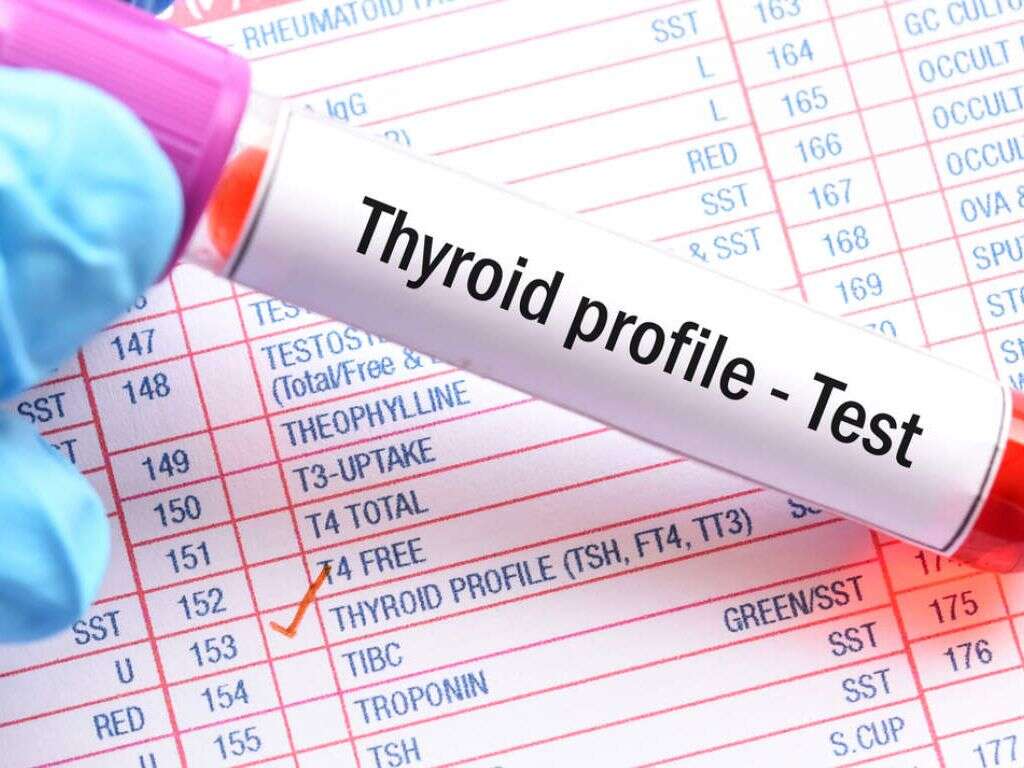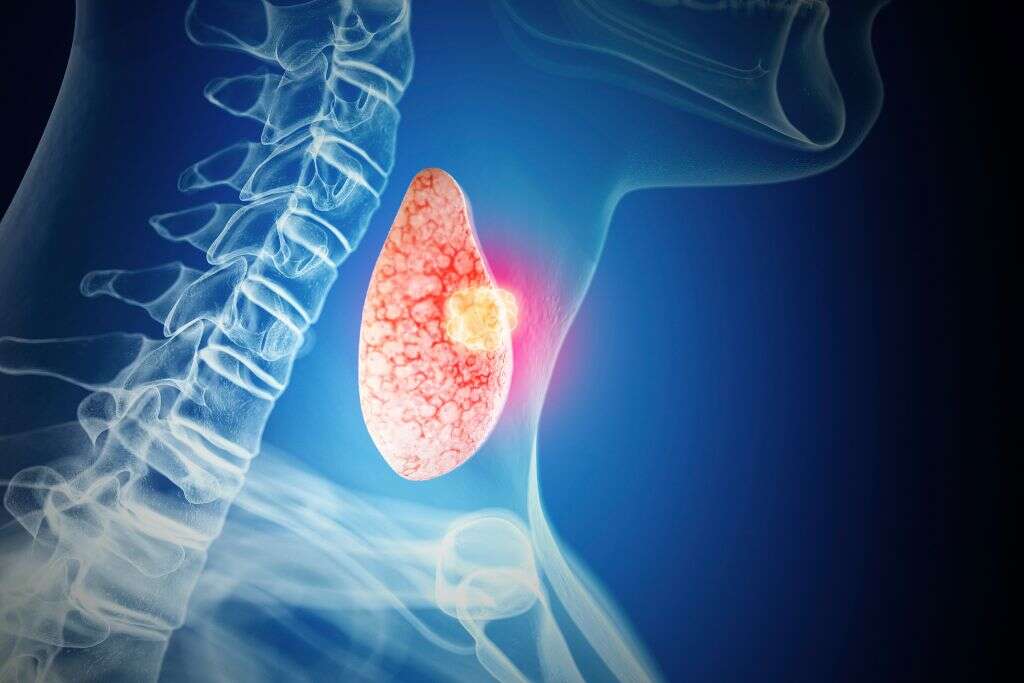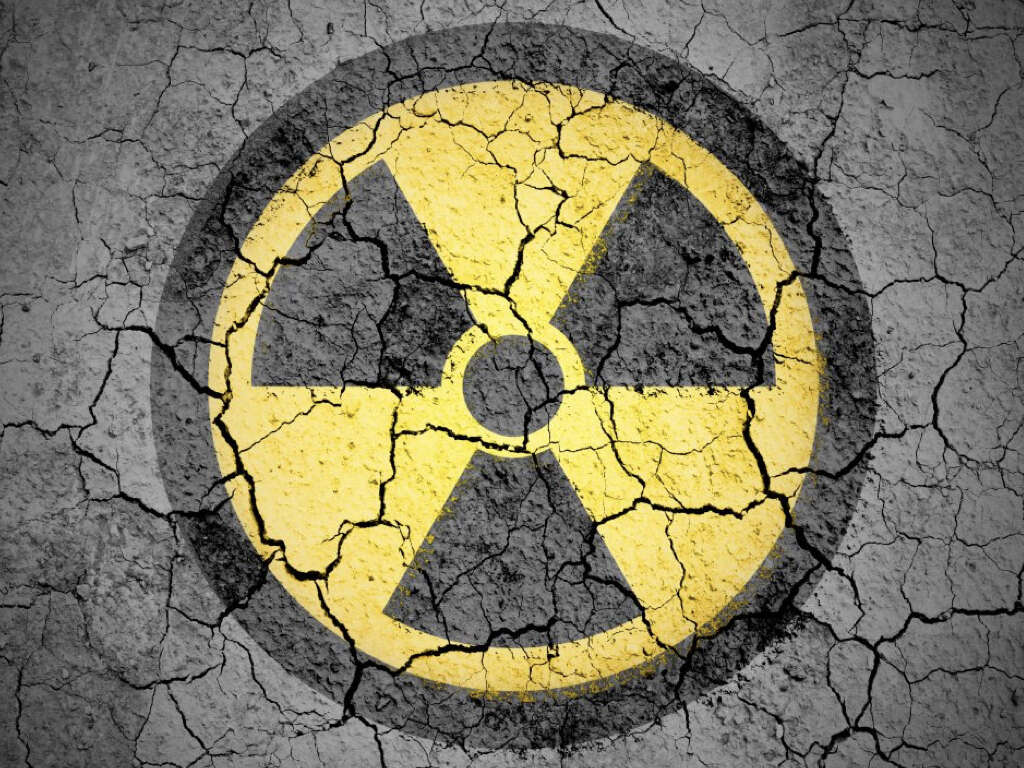What Are Symptoms of Thyroid Problems?
Thyroid problems are more common than most people realize. Sometimes issues that stem from the thyroid are difficult to identify because the symptoms are similar to other conditions. Identifying and diagnosing thyroid disorders is important since most individuals need treatment.
The symptoms of thyroid disease vary according to the type of disorder the patient is experiencing. Anyone experiencing symptoms commonly associated with disorders of the thyroid should schedule an appointment with a physician for analysis and potential diagnosis.

1. What Is a Thyroid?
The thyroid is an organ that is part of the endocrine system and plays an important role in the regulation of the body’s metabolism. Located in the neck, it has a shape that is similar to a butterfly and is situated just below the Adam’s apple.
The body’s endocrine system is responsible for hormone regulation, and the thyroid regulates hormones that are specific to the way the body uses energy. If it is not functioning properly, problems can occur with body temperature, weight, the nervous system, menstruation and heart rate.

2. What Are the Types of Thyroid Problems?
People who suffer from problems with the thyroid do not fall into a one-size-fits-all category since disorders involving the thyroid occur in several different ways. The two most common conditions are hypothyroidism and hyperthyroidism. Patients with hypothyroidism experience a reduction in hormones due to an underproducing thyroid, while those suffering from hyperthyroidism experience an overproduction of hormones due to thyroid overactivity.
Hyperthyroidism and hypothyroidism are not the only conditions that are caused by thyroid dysfunction. An infection can lead to subacute thyroiditis, which causes a temporary underproduction or overproduction of thyroid hormones. In rare cases, a tumor can cause the thyroid to malfunction even if the tumor is benign. Depending on the type of dysfunction, the symptoms of a thyroid disorder can vary greatly from patient to patient.

3. What Are the Common Symptoms of Hypothyroidism?
The symptoms of hypothyroidism can be subtle for some individuals and can be misdiagnosed as other conditions, such as clinical depression. Lethargy and other depression symptoms are common with this condition. Those with untreated hypothyroidism are often slower to process mental information.
Physically, hypothyroidism symptoms include sensitivity to cold temperatures, numbness or tingling in the extremities, dry skin, brittle hair, slow bowels or constipation and heavy periods. In some cases, patients with hypothyroidism develop a goiter in the neck, which is an enlarged area.

4. What Are the Common Symptoms of Hyperthyroidism?
People suffering from hyperthyroidism often have the opposite problems of people with hypothyroidism. Instead of sluggish metabolism and difficulty losing weight, those with hyperthyroidism typically lose weight even with an increase in appetite. This condition can also lead to a neck goiter, and instead of tingling fingers, patients often experience trembling or weakness.
Patients with hyperthyroidism tend to sweat more and experience heart palpitations as well as increases in blood pressure and heart rate. Instead of feeling lethargic and depressed, nervousness and fidgeting are more common. Menstrual periods may become lighter, and the patient may experience diarrhea or urgent bowel movements.

5. What Are the Symptoms of Subacute Thyroiditis?
Unlike hypothyroidism or hyperthyroidism, patients experiencing subacute thyroiditis do not usually present with system-wide symptoms. This condition usually occurs after an acute viral infection such as the flu and symptoms are more obvious.
Subacute thyroiditis is a type of inflammation of the thyroid, so many patients experience severe pain in and around the actual thyroid gland. When palpating the thyroid, it feels painful to the touch. Due to the pain and inflammation, turning the head and swallowing can become difficult.

6. What Are the Symptoms of a Thyroid Tumor?
Often, the first symptom of a tumor in the area of the thyroid is a nodule that can be felt from the outside or when swallowing. The surrounding lymph nodes can also become swollen and painful, with pain radiating toward the ear.
A hoarse voice is another common symptom, which can be accompanied by a cough that is not associated with nasal or chest congestion. Larger tumors can make it difficult to swallow or compress the trachea, giving the patient the sensation that it is difficult to breathe.

7. What Symptoms of a Thyroid Disorder Are Considered Emergencies?
Many symptoms of thyroid dysfunction appear gradually and do not seem to be an immediate threat. In some cases, the signs that a thyroid has malfunctions are missed, and subtle symptoms progress into an emergency. Anyone experiencing thyroid disorder symptoms should be analyzed and treated to prevent symptom progression.
Emergency symptoms include delirium and confusion accompanied by a rapid heart rate and agitation. Patients with known hyperthyroidism who are experiencing these symptoms may be going into thyrotoxic crisis, a medical emergency. Patients with hypothyroidism are at risk for myxedema. Symptoms of this emergency include extreme lethargy, drowsiness and a feeling of cold that can progress to unconsciousness and coma.

8. How Are Thyroid Disorders Diagnosed?
Thyroid conditions are diagnosed using a combination of symptom observation and diagnostic testing. Individuals experiencing symptoms of any type of thyroid disorder should pursue a diagnosis with a physician. The physician takes note of symptoms and determines which tests to complete.
Blood tests, including thyroxine and thyroid-stimulating hormone levels, are one of the first diagnostic tools physicians use to determine if the thyroid is functioning properly. Those who suspect a nodule or thyroid tumor may also be sent for an ultrasound, CT scan or MRI of the thyroid area.

9. What Are the Treatment Options for Thyroid Symptoms?
Thyroid symptoms typically improve once the underlying condition is treated. Patients with hypothyroidism or hyperthyroidism are prescribed medication to level out TSH levels. Normalizing these levels leads to improvement in symptoms.
Patients with thyroid tumors usually need surgery to remove the tumor and possibly the entire thyroid. The nodule or tumor may be tested to see if it is benign. Subacute thyroiditis is a temporary condition that can be treated in early stages with steroids and beta-blockers until symptoms resolve.

10. What Is the Prognosis for Thyroid Conditions?
Although patients can reduce some of the symptoms of hypothyroidism and hyperthyroidism with diet and exercise, these conditions are often permanent and progressive. Treatment with medication and close monitoring helps manage these diseases with minimal symptoms. Medication to treat hypothyroidism comes in the form of synthetic hormones.
Subacute thyroiditis caught in earlier stages usually resolves over time. Some patients develop hypothyroidism if the thyroiditis advances into later stages and needs to be treated with medication permanently. Patients who develop thyroid tumors and have the thyroid surgically removed also need medication to substitute for the lack of hormones.












